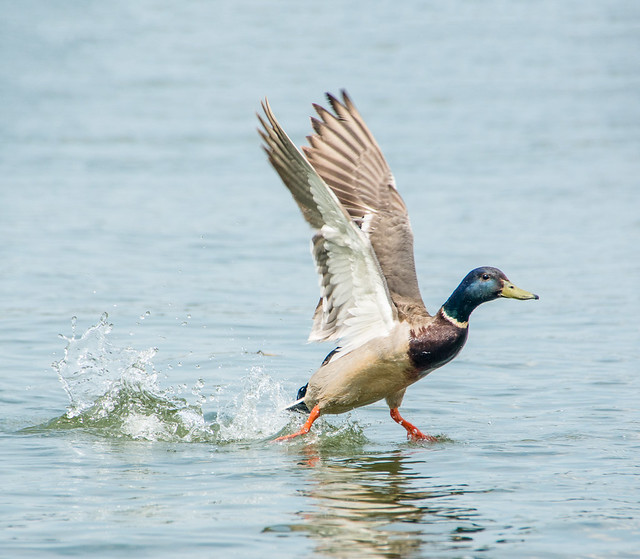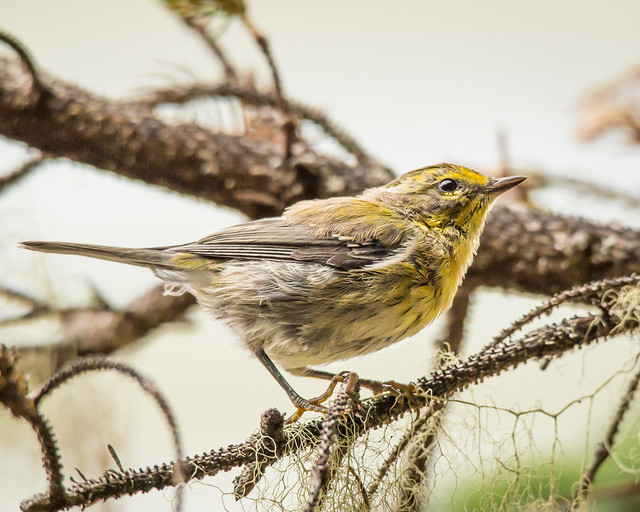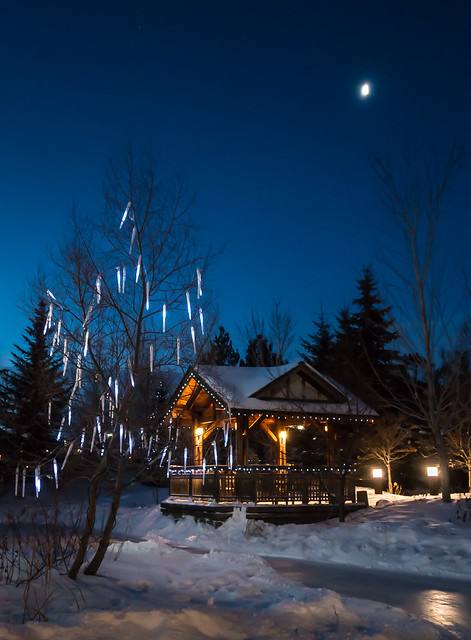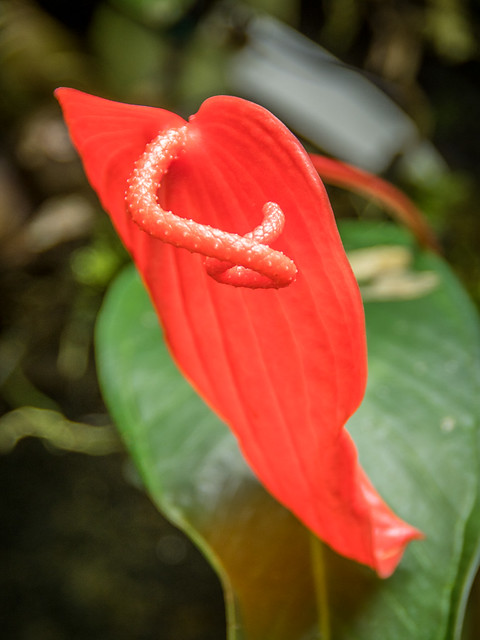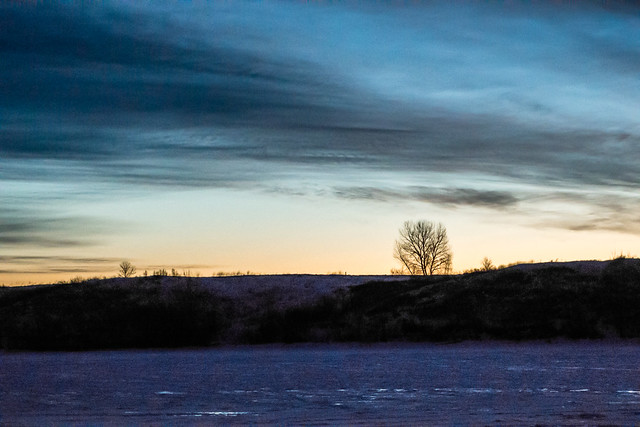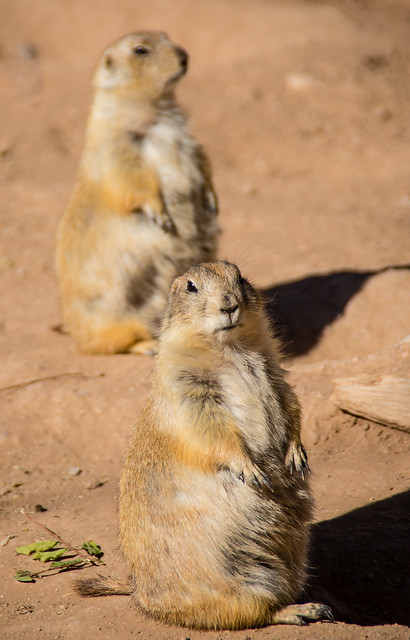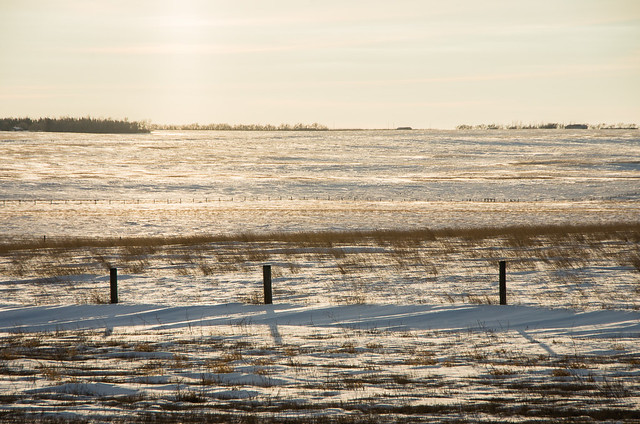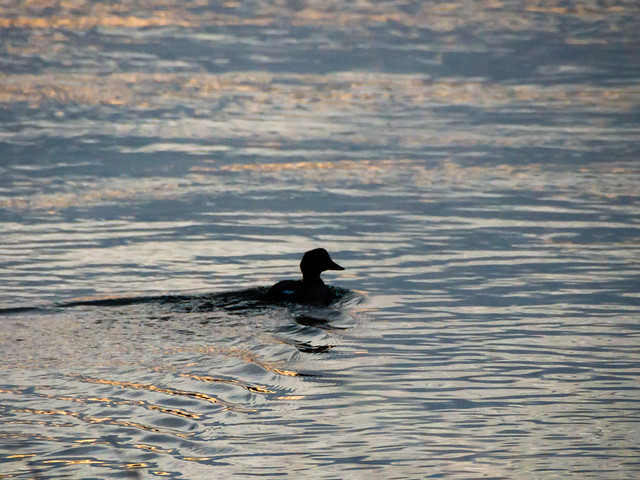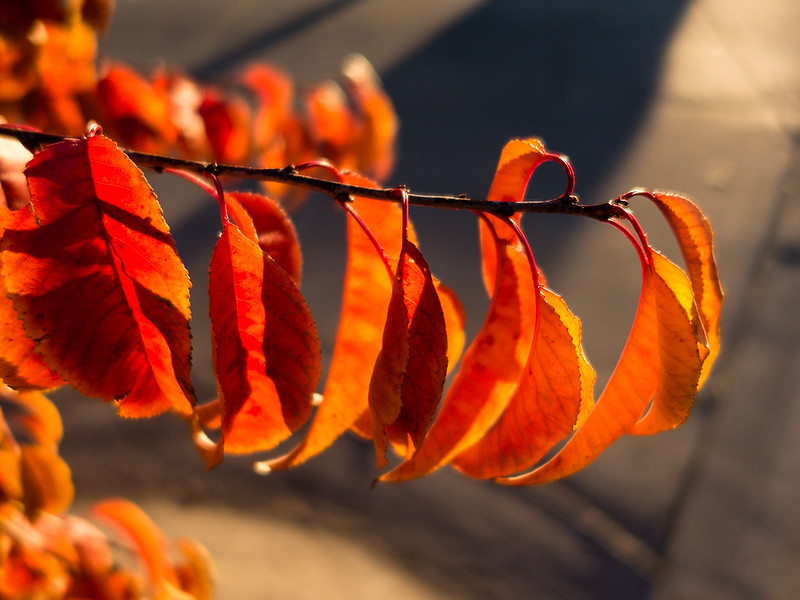Tuesday, 30 December 2014
EcoSask News: Major Events in 2015
Outlined below are some of the major events we can look forward to in 2015:
Native Plant Society AGM & Conference, Feb. 6-7
The Native Plant Society of Saskatchewan is hosting its 20th annual meeting and conference in Saskatoon on February 6 and 7. The keynote speaker will be Aimee Hurt from Working Dogs for Conservation, a Montana-based non-profit organization that uses detector dogs to survey for plant and animal species.
Aquatic Invasive Species Workshop, Feb. 11 & 12
Prairie Waters Working Group is hosting a workshop on Aquatic Invasive Species: Understanding the Issues in Saskatoon (Feb. 11) and Regina (Feb. 12). Of particular concern are quagga and zebra mussels. The workshop will cover identification, prevention, and opportunities for eradication.
Seedy Saturday 2015, Feb./March
The dates have been set for Seedy Saturday 2015:
Regina - Feb. 28
Moose Jaw - Mar. 1
Saskatoon - Mar. 7
Yorkton - Mar. 14
Estevan - Mar. 15
SK Association of Watersheds, Apr. 13-15
The Saskatchewan Association of Watersheds will hold its annual conference in Melfort, April 13-15.
2015 Waste Re-Forum, Apr. 22-24
The Saskatchewan Waste Reduction Council is holding their annual Waste Re-Forum from April 22-24 in Saskatoon. Keynote speakers are Chris Turner and Dr. Norman Sheehan.
Environmental Film Festival, April/May
Plans are underway for the 10th annual Sask Eco-Network Environmental Film Festival.
NatureCity Festival, May 23-29
NatureCity Festival, an action-packed week of speakers, workshops, outings and exhibits, is scheduled for May 23-29 in Saskatoon. Stay tuned for further details.
Nature Saskatchewan Spring Meet, June 19-21
The Yellowhead Flyway Birding Trail Association (YFBTA) will be hosting the 2015 Spring Meet of Nature Saskatchewan. The meet will be held Friday, June 19 and Saturday, June 20 and will be centered in Saltcoats. Nature Saskatchewan’s Annual General Meeting will be held Sunday morning, June 21.
It's hard keeping up with all the great events happening around Saskatchewan. Check our Calendar and see if we've missed anything.
Sunday, 28 December 2014
The Year in Review - 2014
Our top articles for 2014 cover a wide range of topics – passive house construction, permaculture, light pollution, books about Saskatchewan, and more. Enjoy!
Tuesday, 23 December 2014
EcoSask News, December 23, 2014
This week’s EcoSask News brings you a collection of current news stories to ponder as you enter the holiday season.
Local News
Threats to boreal caribou habitat continue to mount in Saskatchewan, including a peat mining project in the Pasquia Bog and oil sands explorations
Congratulations to Rick Huziak for speaking out against light pollution, which wastes energy and harms wildlife (for further information, check out our interview with Rick earlier this year)
Urban Wilderness
Celebrate Urban Birds (CUBs), a project run by the Cornell Lab of Ornithology, studies the birds that manage to eke out a living in cities and surrounding areas
It’s time to broaden our view of wilderness to include urban microwildernesses – small areas that are uncontrollable, unpredictable, and mysterious.
English News Bites
Penny is spending 7 weeks in England. Here are two sites that caught her attention in Lincolnshire:
Ecotricity, Britain’s green energy company, offers everything from wind power to electric cars
Sleaford Renewable Energy Plant – turning wheat straw into electricity
Thought Provoking
A community group that supports local, independent businesses helped a dry cleaner to go green and stay in business
Thursday, 18 December 2014
Sustainable Urban Agriculture: Research and Outreach
Permaculture Research Institute of Saskatchewan (PRI SK) in collaboration with the Garden Patch and Let’s Talk Science: an EcoFriendly Sask Action Grant
Permaculture Research Institute of Saskatchewan, in collaboration with the Garden Patch - Saskatoon Food Bank and Learning Centre and Let’s Talk Science, received a $500 EcoFriendly Sask Action Grant to combine youth education and outreach, waste reduction and urban agricultural research using vermicompost, vermicompost extract and commercial mycorrhizal inoculation.
The following information is based on a report prepared by Michelle Hubbard, with editorial assistance from Joanne Blythe and Brit McDonald.
Objectives
1. To educate the community in general, and youth in particular, on vermicomposting and the potential of vermicompost and/or vermicompost extract in urban agriculture and gardening.
2. To make productive use of food waste generated by the Saskatoon Food Bank and Learning Centre through the production of vermicompost.
3. To evaluate the potential utility of commercially available mycorrhizae (Myke Pro) and vermicompost extract in sustainable urban agriculture in terms of plant performance and yield.
Vermicomposting
Six large and four small vermicomposting bins were started at the Saskatoon Food Bank and Learning Centre. Unfortunately, concerns about smell forced the number of bins to be reduced and restricted to Brit’s office.
Two grade 4/5 classes (Brunskill School and Nehiyawewin-Cree Language and Culture Program, Confederation Park Community School) toured the Food Bank and learned about vermicomposting. Each class took bins back with them to care for in their classrooms.
Research
A field trial was conducted at the Garden Patch to assess the impact of vermicompost extract, mycorrhizae and both treatments together, to improve performance of a pumpkin, corn, and bean “three sisters” cropping system.
Healthy, intact soils are living systems containing a diverse array of microorganisms, including bacteria, mycorrhizal fungi, other fungi and invertebrate animals, such as worms. Soil organisms interact with each other and with plants contributing to soil and plant health. By adding mycorrhizae inoculant and compost extract, participants hoped to restore soil health and gain an increased understanding of the myriad of life right under our feet. Healthy soil is teaming with life, and regenerating soil benefits the environment.
Mycorrhizae are fungi which form symbiotic (mutually beneficial) relationships with the majority of land plants, including most vegetables and agricultural crops. Mycorrhizal fungi cannot complete their life cycle without compatible plants. These fungi colonize (grow within and out from) the roots of plants. The plants carry out photosynthesis, converting energy from sunlight to sugars. The sugars produced are shared with the fungi. In return, mycorrhizae provide numerous benefits to the plants such as increased root surface area, improved plant phosphorous nutrition, and drought tolerance.
Compost extract is a liquid extracted from high-quality compost over a period of several hours. It contains the beneficial microbes (bacteria and fungi) from the compost. These microbes can enhance soil health, reduce the risk of plant disease, and promote plant growth. Extraction is done by submerging compost in highly aerated water. The resulting solution is strained to remove larger particles and is then diluted and applied to the surface of the soil.
In contrast, compost tea is made by growing a selection of microbes from high-quality compost in a sugar-rich solution under aerobic (highly aerated) conditions. Unlike compost extract, compost tea must be applied to soil within roughly two hours, before anaerobic growth begins.
Results
Plant traits, such as leaf diameter and/or height and yield were recorded in order to measure the effectiveness of the different treatments. Neither mycorrhizal inoculation, application of vermicompost extract, nor both treatments in combination led to improvement in corn, bean or pumpkin growth or yield in terms of any of the traits measured as compared to the untreated control. Most plant parameters were unchanged by any of the treatments.
Various factors, including pre-existing soil quality and planting locations, may explain the results. Participants felt that they might have been able to increase the reliability of results if more volunteer hours had been available for measuring additional soil factors and taking repeated measurements.
The beans grew very large, likely suffocating the corn. Potentially, selecting alternative varieties, starting the corn from seed (to avoid transplanting stress) and/or planting the beans later could have ameliorated this problem.
Acknowledgements
Vermicompost outreach was done by Michelle Hubbard, Brit MacDonald, Maria Brown (LTS), Mark McLaughlin (PRI SK) and other LTS volunteers.
Bedding corn was grown by Janna Perry.
Field work was carried out by Michelle Hubbard, Janna Perry, Brit MacDonald, Joanne Blythe, Jim Wood and Concepcion Ponce with weeding by other Garden Patch volunteers.
The full report is available upon request.
Permaculture Research Institute of Saskatchewan, in collaboration with the Garden Patch - Saskatoon Food Bank and Learning Centre and Let’s Talk Science, received a $500 EcoFriendly Sask Action Grant to combine youth education and outreach, waste reduction and urban agricultural research using vermicompost, vermicompost extract and commercial mycorrhizal inoculation.
The following information is based on a report prepared by Michelle Hubbard, with editorial assistance from Joanne Blythe and Brit McDonald.
Objectives
1. To educate the community in general, and youth in particular, on vermicomposting and the potential of vermicompost and/or vermicompost extract in urban agriculture and gardening.
2. To make productive use of food waste generated by the Saskatoon Food Bank and Learning Centre through the production of vermicompost.
3. To evaluate the potential utility of commercially available mycorrhizae (Myke Pro) and vermicompost extract in sustainable urban agriculture in terms of plant performance and yield.
Vermicomposting
Six large and four small vermicomposting bins were started at the Saskatoon Food Bank and Learning Centre. Unfortunately, concerns about smell forced the number of bins to be reduced and restricted to Brit’s office.
Two grade 4/5 classes (Brunskill School and Nehiyawewin-Cree Language and Culture Program, Confederation Park Community School) toured the Food Bank and learned about vermicomposting. Each class took bins back with them to care for in their classrooms.
Research
A field trial was conducted at the Garden Patch to assess the impact of vermicompost extract, mycorrhizae and both treatments together, to improve performance of a pumpkin, corn, and bean “three sisters” cropping system.
Healthy, intact soils are living systems containing a diverse array of microorganisms, including bacteria, mycorrhizal fungi, other fungi and invertebrate animals, such as worms. Soil organisms interact with each other and with plants contributing to soil and plant health. By adding mycorrhizae inoculant and compost extract, participants hoped to restore soil health and gain an increased understanding of the myriad of life right under our feet. Healthy soil is teaming with life, and regenerating soil benefits the environment.
Mycorrhizae are fungi which form symbiotic (mutually beneficial) relationships with the majority of land plants, including most vegetables and agricultural crops. Mycorrhizal fungi cannot complete their life cycle without compatible plants. These fungi colonize (grow within and out from) the roots of plants. The plants carry out photosynthesis, converting energy from sunlight to sugars. The sugars produced are shared with the fungi. In return, mycorrhizae provide numerous benefits to the plants such as increased root surface area, improved plant phosphorous nutrition, and drought tolerance.
Compost extract is a liquid extracted from high-quality compost over a period of several hours. It contains the beneficial microbes (bacteria and fungi) from the compost. These microbes can enhance soil health, reduce the risk of plant disease, and promote plant growth. Extraction is done by submerging compost in highly aerated water. The resulting solution is strained to remove larger particles and is then diluted and applied to the surface of the soil.
In contrast, compost tea is made by growing a selection of microbes from high-quality compost in a sugar-rich solution under aerobic (highly aerated) conditions. Unlike compost extract, compost tea must be applied to soil within roughly two hours, before anaerobic growth begins.
Results
Plant traits, such as leaf diameter and/or height and yield were recorded in order to measure the effectiveness of the different treatments. Neither mycorrhizal inoculation, application of vermicompost extract, nor both treatments in combination led to improvement in corn, bean or pumpkin growth or yield in terms of any of the traits measured as compared to the untreated control. Most plant parameters were unchanged by any of the treatments.
Various factors, including pre-existing soil quality and planting locations, may explain the results. Participants felt that they might have been able to increase the reliability of results if more volunteer hours had been available for measuring additional soil factors and taking repeated measurements.
The beans grew very large, likely suffocating the corn. Potentially, selecting alternative varieties, starting the corn from seed (to avoid transplanting stress) and/or planting the beans later could have ameliorated this problem.
Acknowledgements
Vermicompost outreach was done by Michelle Hubbard, Brit MacDonald, Maria Brown (LTS), Mark McLaughlin (PRI SK) and other LTS volunteers.
Bedding corn was grown by Janna Perry.
Field work was carried out by Michelle Hubbard, Janna Perry, Brit MacDonald, Joanne Blythe, Jim Wood and Concepcion Ponce with weeding by other Garden Patch volunteers.
The full report is available upon request.
Tuesday, 16 December 2014
EcoSask News, December 16, 2014
Permasask Potlucks
Join Permasask at one of their upcoming potlucks and meetings:
Dec. 18 – potluck and holiday/solstice celebration
Jan. 22 – Candace Savage talking about Wild About Saskatoon
Feb. 19 – Paul Hanley discussing his latest book, Eleven
Native Plant Society AGM, Feb. 6-7
The Native Plant Society of Saskatchewan is hosting its 20th annual meeting and conference in Saskatoon on February 6 and 7. The keynote speaker will be Aimee Hurt from Working Dogs for Conservation, a Montana-based non-profit organization that uses detector dogs to survey for plant and animal species.
Cross-Country Ski Loppet, Feb. 27-Mar. 1
Join SaskOutdoors and the Kamsack Ski Club for their annual cross-country ski loppet at Duck Mountain, Feb. 27-Mar. 1.
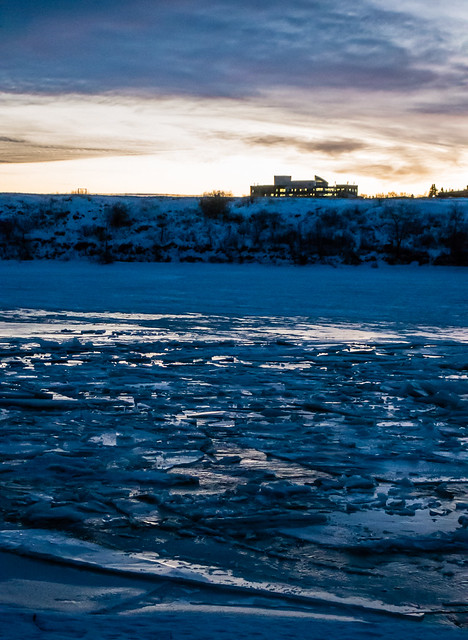 Local News
Local NewsCommunity-Based Watershed Planning
Over the last several years, the local community around Pike Lake has been working on a watershed planning initiative to identify and address issues related to their local watershed. Stakeholders involved include local cottage owners and farmers, the Rural Municipality of Vanscoy, Pike Lake Provincial Park, Water Security Agency, and other interest groups.
The stakeholders have identified the main issues affecting their local watershed and some key management actions required to address these issues. They are now developing a plan.
If your community is interested in addressing local source water protection issues, contact Renny Grilz at South Saskatchewan River Water Stewards for more information.
Environmental Film Festival
The Saskatchewan Eco Network has started planning their 10th annual film festival to be held in April or May 2015. They’re looking for ideas, volunteers, and donations in order to make this the best film festival ever.
Ness Creek Waste Reduction
Ness Creek Festival, in conjunction with the U of S School of Environment and Sustainability, conducted a waste audit for the 2014 festival to provide public education and baseline data for future sustainability initiatives. A team of 35 volunteers, coordinated by Master’s student, Kelly Richardson, attended the festival, making it one of the cleanest festivals to date.
Future Proof Your Home
The second edition of How to Future Proof Your Home by Shane Wolfe is now available electronically. The second edition contains 30% new information with plenty of information about building passive houses.
GOT Parks
The Canadian Parks Council has established Get Out To Parks to encourage young people to enjoy our parks. You can follow them on Facebook and Twitter.
EcoSask News is a weekly round-up of local news and events. Email us if you have items you would like us to include. Additional upcoming events can be found on our Calendar.
You can follow EcoFriendly Sask by liking us on Facebook, following us on Twitter, or by email (top right corner).
Tuesday, 9 December 2014
EcoSask News, December 9, 2014
Events
Black-Tailed Prairie Dog & Black-Footed Ferret Ecology, Dec. 11
Tara Stephens, Calgary Zoo’s Centre for Conservation and Research, will discuss the Prairie Dog/Ferret Ecology in Grasslands National Park in a Dec. 11 webinar organized by PCAP Sask.
Green Drinks Saskatoon, Dec. 12
Everyone is welcome to attend Green Drinks Saskatoon at 5:30 pm, Dec. 12, at the Hose & Hydrant on 11th Street E.
Christmas Bird Count for Kids, Jan. 2
Join the Saskatoon Young Naturalists between 10:30 am and 3:30 pm as they head out once an hour to count the birds you see at the Forestry Farm Park. You can warm up afterwards with cookies and hot chocolate.
Effects of Oil Development on Grassland Songbirds, Jan. 21 (Regina)
Jason Unruh, University of Regina, will talk about the Effects of Oil Development on Grassland Songbirds at 7 pm, Jan. 21, at the Saskatchewan Science Centre as part of PCAP’s Native Prairie Speaker Series.
Aquatic Invasive Species Workshop, Feb. 11 & 12
Prairie Waters Working Group is hosting a workshop on Aquatic Invasive Species: Understanding the Issues in Saskatoon (Feb. 11) and Regina (Feb. 12). Of particular concern are quagga and zebra mussels. The workshop will cover identification, prevention, and opportunities for eradication.
Local News
The City of Saskatoon is considering a solar power project to test 3 different types of solar PV panels to help power the landfill gas power generation facility. They are also considering a pilot project to help up to 50 households purchase and install solar panel systems.
Unlike Saskatoon, the city of Magog, QC, is implementing a lighting policy that is reducing light pollution and energy use.
The Saskatchewan government has signed a 10-year agreement with Weyerhauser to conduct ecologically responsible logging operations emulating natural growth patterns of the forest in Duck Mountain Provincial Park.
South Saskatchewan River Water Stewards offer some useful information on how and where to recycle agricultural materials
Thought Provoking
9 Guidelines for Green Giving – from buying less to giving useful stuff and experiences
EcoSask News is a weekly round-up of local news and events. Email us if you have items you would like us to include. Additional upcoming events can be found on our Calendar.
You can follow EcoFriendly Sask by liking us on Facebook, following us on Twitter, or by email (top right corner).
Tuesday, 2 December 2014
EcoSask News, Dec. 2, 2014
Biodiversity & Food Production, Dec. 2
Jason Clay, Senior Vice President, World Wildlife Fund, will speak on Saving Biodiversity by Promoting More Sustainable Food Production at 12:30 pm, Dec. 2, in Room 2302, Western College of Veterinary Medicine, U of S.
Green Drinks Regina, Dec. 4
Green Drinks Regina is meeting at 5:45 pm, Dec. 4, at Abstractions Café.
Citizen Scientists & Bird Conservation, Dec. 11
Brenda Dale, a wildlife biologist, promotes bird conservation through the use of electronic data gathering programs. In her talk at the Saskatoon Nature Society meeting, she will compare the available programs, noting the type of information collected and the skill level required to use them, as well as stressing the vital importance of the data accumulated through the work of volunteers.
Everyone is invited to attend the talk at 7:30 pm, Dec. 11, in Room 106, Biology Building, U of S.
Christmas Bird Counts
Everyone is invited to participate in the local Christmas Bird Counts:
Qu’Appelle Valley - Dec. 14
Gardiner Dam - Dec. 15
Radisson-Borden - Dec. 18
Clark’s Crossing - Dec. 20
Saskatoon - Dec. 26
Pike Lake - Jan. 3
EcoFriendly Action Grant
The John Paul II KEY CLUB in North Battleford will receive a $500 EcoFriendly Action Grant to support their tree planting project. Over the past 8 years, the club has planted 16,000 trees in the North Saskatchewan River Valley. They plan to plant an additional 2,000 trees in April 2015.
Net Metering Rebate Extended
SaskPower’s Net Metering Rebate has been extended until November 30, 2016. The one-time rebate is equivalent to 20% of eligible costs to a maximum payment of $20,000 for an approved and grid interconnected net metering project. The program covers electricity customers of SaskPower, Saskatoon Light & Power, and City of Swift Current.
Sask Oil Spills
The Government of Saskatchewan recently released a 167-page document listing crude oil and toxic water spills from sites and facilities owned by the petroleum industry. Many of these documents have probably never been seen before by the general public.
More Cars than People
Once again, there are more cars than people in Saskatoon with 1.1 cars per person. Only 5% of the population uses public transit.
Urban Coyotes
Don’t be surprised if you see a coyote in the city. Project Coyote says, “Keeping coyotes wild and wary is the key to successful coexistence.” Project Coyote has published a brochure that explains how to keep coyotes at a distance.
Thought Provoking
Canada’s process to protect endangered species is failing, says Dr. Brett Favoro: "If you're not protecting habitat, then no matter how long we leave something listed, it seems unlikely that it's going to recover and do better.”
EcoSask News is a weekly round-up of local news and events. Email us if you have items you would like us to include. Additional upcoming events can be found on our Calendar.
You can follow EcoFriendly Sask by liking us on Facebook, following us on Twitter, or by email (top right corner).
Labels:
Agriculture,
Birds,
EcoFriendly Action Grant,
Education,
Energy,
Transportation,
Urban,
Wildlife
Tuesday, 25 November 2014
EcoSask News, November 24, 2014
 |
| Singapore |
Events
Recreation & Parks Master Plan, Nov. 25
The City of Saskatoon is asking for feedback on its draft Recreation and Parks Master Plan. You can attend an Open House on Nov. 25 from 12-2 or 5-8 pm, or complete the online survey. This is an opportunity to emphasize to the City the importance of urban natural areas.
Futureproof Radio, Nov. 25
Futureproof Radio launches Nov. 25. The live radio program, hosted by Shane Wolffe, will discuss current and future technologies that can help make the world a better place. The program will also be available as a podcast.
SaskOutdoors AGM, Jan. 24
SaskOutdoors will be holding its annual general meeting in or near Saskatoon on January 24.
Waste Minimization Awards, Feb. 20
The Saskatchewan Waste Reduction Council is asking for nominations for its Waste Minimization Awards. The deadline for nominations is February 20.
 |
| Singapore has a solar fan. What Saskatoon needs is a solar heater. |
Local News
Building Energy Efficiency
30% of Canada’s energy usage is from commercial and residential buildings. Building energy efficiency standards, similar to those in other provinces, can help save energy and money. You can find out more about the benefits and challenges of building energy efficiency standards on the Build Sask Green website.
Vermicomposting at School (Regina)
PV Waste Solutions and Green Guerilla Sustainability are providing vermicomposting kits and teaching grade 3 classes in Regina how to compost their food waste.
Photos – Wildlife in the City
Gary Pedersen and Jeff Boone, City of Saskatoon, are looking for photos of urban wildlife for use in a series of brochures on Living with Urban Wildlife. They’re particularly interested in receiving photos of foxes in the city. In future, they will be looking for photos of skunks, badgers, raccoons and porcupines in the urban environment. You can email your photos to Gary.
Burrowing Owls
Good news! The number of burrowing owls in Saskatchewan is up. 2014 survey participants sighted 28 pairs, a 33% increase from 21 last year. There has also been an increase in public sightings. The Operation Burrowing Owl website provides additional information.
 |
| Singapore |
Thought Provoking
Water and Watersheds
Smart land use practices can help clean our waterways
Protecting water at its source can be cheaper and more efficient than treating it after it has been polluted
Solar Power
Saskatoon could be at the dawn of a solar sunrise – here’s why
Two First Nations schools in northern communities hope to dramatically reduce their power bill thanks to solar power
EcoSask News is a weekly round-up of local news and events. Email us if you have items you would like us to include. Additional upcoming events can be found on our Calendar.
You can follow EcoFriendly Sask by liking us on Facebook, following us on Twitter, or by email (top right corner).
Thursday, 20 November 2014
Bring Your Own Mug
The following article appeared in the November edition of flow magazine.
I chuckle every time I use my travel mug promoting a microbrewery. I’m probably drinking tea, but then again, you never know.
The Saskatoon Friendship Inn serves from 800 to 1000 meals a day. In July they replaced the styrofoam cups they had been using with reusable plastic mugs, thanks to a grant from EcoFriendly Sask.
I carry a travel mug with me wherever I go, and I’m always surprised by the number of people who don’t. The average office worker throws away 500 paper cups a year. And none of them can be recycled. They may look like paper, but they’re coated with a thin layer of plastic.
So, how can we make it easier for everyone to carry their own mug? Help is on the way. There are plans for a collapsible mug that you can “smash and stash.” Other companies are developing an edible cup, although that may prove too expensive.
We asked readers to respond to the magazine article by sharing a photo of their favorite reusable mug, and we heard from a number of people.
Why not share your photo too? Who knows? There might even be a prize for the most unusual.
 |
| Lynn even carries her own plate and cutlery |
 |
| @jnunavut |
 |
| @Pugmom2014 |
Tuesday, 18 November 2014
EcoSask News, Nov. 18, 2014
Events
Permasask Potluck & Meeting, Nov. 20
Permasask member Kaitlyn Harvey will talk about her experience at the People’s Climate March in NYC at the Permasask Potluck & Meeting, Nov. 20.
Building Operator Training Seminar, Nov. 21
Non-profit organizations and small businesses are invited to attend a one-day workshop on Nov. 21 to learn how to operate their buildings more efficiently.
Collectively Green Craft Show, Nov. 22
Buy locally-made, earth-friendly gifts at the Collectively Green Craft Show, from 10 am - 5 pm, Nov. 22, at Grace-Westminster United Church.
Bird Feeder Craft, Nov. 22, 23, 29, 30
Drop by the Meewasin Valley Centre from 1-4 pm, Nov. 22, 23, 29 or 30, to make a backyard bird feeder.
Saskatoon Growth Plan Workshops, Nov. 26
The City of Saskatoon is hosting revolving workshops from 10 am - 1 pm and from 6-9 pm on Nov. 26 at TCU Place to discuss the city’s future growth strategies.
Premiere of Grasslands, Nov. 26 (Regina)
Public Pastures – Public Interests and Friends of the Museum are hosting a fundraiser premiere of Grasslands, a documentary about Grasslands National Park at 7:30 pm, Nov. 26, at the Royal Saskatchewan Museum, Regina. A short trailer gives a taste of the fabulous photography.
Grasslands (Trailer) from 291 Film Company on Vimeo.
Beaver Creek’s Winter Hours
Beaver Creek Conservation Area is open from 9 am to 5 pm, Monday-Friday during November and December.
They’ll be open from 12-5 pm daily from Dec. 26 to Jan. 1 with a hike at 2:30 pm every day with an interpreter.
Native Prairie Restoration & Reclamation Workshop, Jan. 28-29
The 2015 Native Prairie Restoration & Reclamation Workshop will be held in Saskatoon, January 28-29, 2015. Chris Helzer, The Prairie Ecologist, is the keynote speaker. Topics include invasive species, wild seed harvesting, and wetland restoration.
News
Medicine Hat: Solar, Wind & Natural Gas
Medicine Hat has built Canada’s first concentrated solar thermal plant. They've built a wind farm within city limits and encourage residents to install solar panels by going 50-50 with them. Mayor Clugston says, “We had to reinvest, we had to diversify because all of our eggs were in that one basket, which was natural gas.”
New Drainage Regulations
The Water Security Agency has released the results of their online public consultation on agricultural drainage. There is general agreement that “drainage provides many benefits to agricultural producers, but that the negative impacts of drainage must be mitigated. Also, forum participants supported implementing regulations that are risk-based; those drainage activities of a larger scale, which pose a greater risk to land and property would require more stringent regulations.”
The Minister responsible for the Water Security Agency has said that new drainage regulations are a priority.
EcoSask News is a weekly round-up of local news and events. Email us if you have items you would like us to include. Additional upcoming events can be found on our Calendar.
You can follow EcoFriendly Sask by liking us on Facebook, following us on Twitter, or by email (top right corner).
Labels:
Agriculture,
Birds,
Energy,
Parks,
Permaculture,
Prairie,
Urban,
Urban Planning,
Water,
Youth
Thursday, 13 November 2014
Education for Sustainability: A Conversation with Janet McVittie
“Most of our thinking is centred around the immediate – today and tomorrow. We need to be thinking seven generations out,” says Janet McVittie, Assistant Professor, College of Education, University of Saskatchewan. “That’s hard to do when you’re young, but I’m hopeful that starting environmental education at a younger age will have an effect.”
Purpose and Parameters
There are several different forms of education around environmental issues.
Environmental education focuses on teaching ecological concepts and principles, such as the definition of an ecosystem or the balance between predator and prey. “They teach students about the environment, but the programs are not necessarily action-oriented or experiential, nor do they necessarily challenge the status quo,” explains Janet.
Outdoor education encompasses educational programs that take place out of doors. Most Saskatoon programs fit into this category. Outdoor education programs teach students to observe and to learn by doing. “It’s not enough to simply spend time outdoors,” Janet says. “Teachers can help students to view their surroundings critically. For example, one teacher took his students to the same spot in each of the four seasons, and he asked them questions: Where does the water in the creek go? How does it affect the areas downstream?”
“Outdoor education teaches about the environment in the environment. It’s experiential,” Janet explains. “However, unless the teacher provokes critique and action, it does not necessarily teach for the environment.”
Janet stresses the importance of discussing issues from a local perspective. “Issues such as poverty are complex. It’s easy to think we’ve solved the problem by sending money to Guatemala. By starting at the local level and moving to the global level, children appreciate that these are complex issues,” she explains. “Social and ecological justice issues are intertwined. One cannot heal the environment without resolving issues of inequity.”
Programs in Saskatoon
 Saskatchewan has only one formal environmental education program. Other than in that program, environmentally committed teachers are responsible for taking the courses they teach and working them around environmental topics.
Saskatchewan has only one formal environmental education program. Other than in that program, environmentally committed teachers are responsible for taking the courses they teach and working them around environmental topics.“It’s an advantage to not have an environmental education curriculum as it allows teachers to take a critical, action-oriented approach,” Janet says. “But teachers are also at a disadvantage as they have to fit the environmental courses around the existing curriculum.”
There are some Saskatoon programs that teach students about the environment while in the environment. These include programs at the Brightwater Science and Environmental Centre, the Blackstrap Outdoor/Environmental Center, the Ed and May Scissons Environmental Centre at Eagle Creek, and the nature-based programs offered by the Saskatoon Zoo Society, the Meewasin Valley Authority, and Wanuskewin. Transportation costs and the small size of the programs limit how many students can participate.
The Province of Saskatchewan recently introduced a new science curriculum for grade 11 students. The Environmental Science 20 course description states that, “Students will learn how to examine local and global environmental issues from a systems perspective while considering the effects of human actions and a growing global population on the climate and environment, as well as the effects of the environment on human health.”
“The new program expects teachers to take their students outdoors,” Janet says, “but it’s hard to get outside in the regular 60-minute class. You need places close to the school, such as a community garden or a native plant garden.”
Moving Forward
A term that is coming into use is education for sustainability. It recognizes the connections between the environment, social justice, and the economy. For example, why do we place toxic waste dumps in northern Saskatchewan or locate garbage dumps next to poor neighbourhoods? How do we measure the cost of mitigating the environmental damage caused by extracting natural resources? Why are resources inequitably distributed?
Janet has met environmental educators from other provinces and believes that we see environmental education differently in Saskatchewan. “In Saskatchewan, we connect environmental and social justice issues and we support both formal (intentional, evaluated) and non-formal (workshops, tours) approaches,” she explains. “We take an action-oriented approach. We want to make children aware of the political process so that they can become involved.”
The new Bachelor of Education program at the University of Saskatchewan supports this approach. It focuses on helping beginning teachers to build the curriculum around the important issues of the day.
All teacher candidates now take a course called Pedagogies of Place which helps them find learning resources in their communities. Also addressed in the course are experiential, inquiry-based instructional methods and assessment for learning processes to support students developing competency in their inquiries. They also take a course called Ethical Beginnings which addresses social justice. Addressed in the course are critical approaches to teaching and learning, for examining and challenging the status quo.
Why It Matters
In an age dominated by technological advances, it’s increasingly important for all of us to balance our online time with outdoor time. Environmental education programs are crucial for ensuring that children spend time outdoors and learn to appreciate nature.
Additional Resources
SaskOutdoors
EcoJustice, Greater Saskatoon Catholic Schools
Outdoor School, Saskatoon Public Schools
EcoQuest, Saskatoon Public Schools
Let’s Lead Nikanetan
Photo Credit: Alyssa Wiebe, College of Education, University of Saskatchewan
Tuesday, 11 November 2014
EcoSask News, Nov. 11, 2014
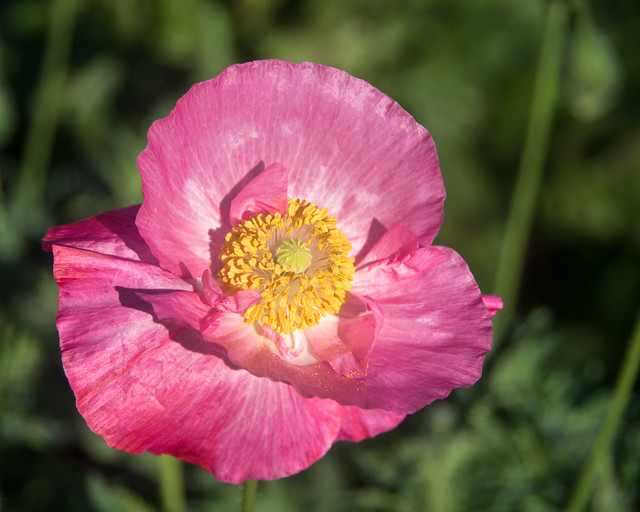 |
| "In the field the poppies grow..." |
Ariel, the Swainson’s Hawk, Nov. 16
Visit with Greg Fenty and Ariel the Swainson’s Hawk at 12 noon, Nov. 16, at Wild Birds Unlimited. Ariel is over 20 years old!
My ABC Book, Nov. 16
Anne McElroy presents her children’s book, My ABC Book… Wild Creatures, Weird Facts, at 1 pm, Nov. 16, at McNally Robinson Booksellers. Anne is an active volunteer with the Wildlife Rehabilitation Society of Saskatchewan.
Eleven, Nov. 17
McNally Robinson is hosting a book launch for Paul Hanley’s new book, Eleven, at 7 pm, Nov. 17.
Electric Cars & Hybrids, Nov. 18
Lynn Oliphant will discuss the evolution of electric cars and hybrid vehicles at 7 pm, November 18, at the Frances Morrison Library as part of the SES Sustainable Speaker Series.
SK Conservation Data Centre, Nov. 19 (Regina)
Sarah Vinge-Mazer will speak about the Saskatchewan Conservation Data Centre – Rankings, Research, and Rare Plants at 7 pm, Nov. 19, in the Royal Saskatchewan Museum Theatre, Regina, as part of PCAP's Prairie Speaker Series.
Sharing Your Garden with the Birds, Nov. 20
Sara Williams, author of Creating the Prairie Xeriscape, will be speaking at the Saskatoon Nature Society’s meeting at 7:30 pm, Nov. 20, in Room 106, Biology Building, University of Saskatchewan. Sara believes that saving water and providing habitat for birds are a good match and will introduce about 100 hardy, drought-tolerant trees and shrubs that seem to attract birds.
 Thank You, WAM!
Thank You, WAM!The members of We Are Many have decided to take an extended break. Let’s give them a huge vote of thanks for all they've contributed over the past few years, including hydration stations at community events and increasing our local supply of garlic and berries.
WAM is hosting its AGM at 7:30 pm, Nov.19, at the Core Neighbourhood Youth Co-op. Everyone is welcome.
Living Sky Wildlife Rehabilitation Needs Your Help
Living Sky Wildlife Rehabilitation has completely outgrown its space and needs to find a barn or building on the edge of Saskatoon that they can use for the summer. Ideally, they would like access to water/sewer, outdoor space to build aviaries, and electricity. Call 306-652-5975 if you, or someone you know, can help.
Interesting Articles
It may be annoying, but wind turbine noise doesn't harm our health
Our household waste explodes during the holidays
Students in a year-round outdoor education class at Delisle Composite learn about biodiversity, farming, and native plants
“A protected bike lane is a symbol of democracy” and other advice from Enrique Penalosa
EcoSask News is a weekly round-up of local news and events. Email us if you have items you would like us to include. Additional upcoming events can be found on our Calendar.
You can follow EcoFriendly Sask by liking us on Facebook, following us on Twitter, or by email (top right corner).
Thursday, 6 November 2014
Kids in Nature 2015 Grant Program
The Saskatoon Nature Society offers an annual Kids in Nature grant program to strengthen existing programs and encourage new programs that connect youth in the Saskatoon area with nature.
The total amount of funding available is $2000. This amount may go to one applicant or be shared among several applicants.
Educational institutions, including primary or secondary schools, community associations, Aboriginal bands, and registered charities in the Saskatoon area, are invited to apply for the grant.
 The project must target children or youth up to and including 18 years of age. Funds can be used for a new project or an existing ongoing project. You can only submit one application.
The project must target children or youth up to and including 18 years of age. Funds can be used for a new project or an existing ongoing project. You can only submit one application.An application form is available online and must be submitted by December 31, 2014.
For more information, send an email to: president [at] saskatoonnaturesociety.sk.ca.
Wednesday, 5 November 2014
Notes from the Field: New Construction on Queen Street
Two new buildings are going up on Queen Street, west of City Hospital, and both of them are advertising some environmentally friendly features. Let’s hope that they are part of a trend of providing alternatives to urban sprawl and a greater consciousness of environmental concerns.
Timber Pointe on Queen
Timber Pointe on Queen is a commercial property with strata title offices to own or lease.
Of particular interest is the underground parking, which will have a green roof, a rarity in Saskatoon.
As Michael Molaro explained when we talked to him, green roofs can play an important role in storm water drainage and run off and can lower the temperature of urban heat islands.
Shangri-La on 4th
Shangri-La on 4th emphasizes the benefits of living in the downtown core.
They stress walkability – two blocks to Kinsmen Park, Earls next door, etc.
They also list a number of green initiatives: car share program, bicycle storage, reduced water flow shower heads, LED fixtures in common areas, etc.
See also:
Passive House: Comfortable, Energy-Efficient Homes
Saskatoon: Becoming a Leader in Cold Climate Energy Efficiency
Innovation Place’s Sustainability Culture
University of Saskatchewan Sustainability Issues
Confederation Inn, Saskatoon: Going Green and Saving Money
Timber Pointe on Queen
Timber Pointe on Queen is a commercial property with strata title offices to own or lease.
Of particular interest is the underground parking, which will have a green roof, a rarity in Saskatoon.
As Michael Molaro explained when we talked to him, green roofs can play an important role in storm water drainage and run off and can lower the temperature of urban heat islands.
Shangri-La on 4th
Shangri-La on 4th emphasizes the benefits of living in the downtown core.
They stress walkability – two blocks to Kinsmen Park, Earls next door, etc.
They also list a number of green initiatives: car share program, bicycle storage, reduced water flow shower heads, LED fixtures in common areas, etc.
See also:
Passive House: Comfortable, Energy-Efficient Homes
Saskatoon: Becoming a Leader in Cold Climate Energy Efficiency
Innovation Place’s Sustainability Culture
University of Saskatchewan Sustainability Issues
Confederation Inn, Saskatoon: Going Green and Saving Money
Tuesday, 4 November 2014
EcoSask News, November 4, 2014
Events
Green Drinks Regina, Nov. 6
Green Drinks Regina will be meeting at Abstractions Café at 5:30 pm, Nov. 6.
Blue Grama, Nov. 13
Heather Peat Hamm will read from Blue Grama, a book about the intensity of prairie life – people, plants, and spaces, at 7 pm, Nov. 13 at McNally Robinson Booksellers.
Building SK Green Lecture, Nov. 14
Chris Turner, author of The Geography of Hope: A Tour of the World We Need and The Great Leap: How to Survive and Thrive in the Sustainable Economy, will be speaking at 4 pm, Nov. 14, at the Delta Bessborough. The talk is part of the Building Saskatchewan Green conference.
Saskatoon Nature Society Field Trips
Nov. 16, 1:30-5:30 pm – Pike Lake Birding
Nov. 22, 9 am – 3 pm – Spinney Hill Evergreen Forest
Nov. 30, 2-3 pm – Pre-Grey Cup Birding at President Murray Park
Check the Saskatoon Nature Society’s website for full details (e.g. some trips require rubber boots, others will be cancelled if the weather is bad).
Wild About Saskatoon 2015
It’s official! The NatureCity Festival will rise again, May 23-29, 2015. The focus will be on the relationship between human health and access to healthy/biodiverse natural places.
EcoFriendly Sask will once again provide $5,000 financial support.
SK Birds Calendar
Nick Saunders’s Saskatchewan Birds Calendar 2015 is now available for purchase.
News
The Saskatchewan Environmental Society says that the new Environmental Management and Protection Act leaves greenhouse gas management on the back burner: “Conspicuously missing in today's announcement is any reference to the Management and Reduction of Greenhouse Gases Act, which still awaits proclamation four years after passing third reading in the Legislature. This Act, although relatively weak, would at least get Saskatchewan started on the urgent task of controlling our province's embarrassingly high per capita emissions, now sitting at three and one half times the Canadian average.”
The longest sage grouse migration in the world is between Saskatchewan and Montana - a 100-mile journey. Individuals from both sides of the border met recently to share ideas and to work together to keep the habitat corridor intact.
On a related topic, researchers have found that sage grouse and the oil industry can co-exist as the priority areas of conservation in the US are not all that important for energy development.
Edmonton is the first city in Canada to construct a living wall as a sound barrier.
Wildlife crossings reduce road kill by design.
EcoSask News is a weekly round-up of local news and events. Email us if you have items you would like us to include. Additional upcoming events can be found on our Calendar.
You can follow EcoFriendly Sask by liking us on Facebook, following us on Twitter, or by email (top right corner).
Thursday, 30 October 2014
Edible Gardens - Craik Sustainable Living Project
Craik
 In 2001, the Town of Craik and the Rural Municipality of Craik began working in partnership to develop a long-term plan for a sustainable community-based project. This partnership, called the Craik Sustainable Living Project (CSLP) recognizes the need for tangible, local initiatives addressing climate change and rural community revitalization.
In 2001, the Town of Craik and the Rural Municipality of Craik began working in partnership to develop a long-term plan for a sustainable community-based project. This partnership, called the Craik Sustainable Living Project (CSLP) recognizes the need for tangible, local initiatives addressing climate change and rural community revitalization.
The goals of the CSLP as updated in 2013 include:
The Eco-Centre, completed in 2004, is a key component of the CSLP. It features innovative and energy-efficient building design; integrated heating, cooling and renewable energy systems; as well as renewable waste handling and water treatment systems.
Edible Gardens
 CSLP applied for a $500 EcoFriendly Action Grant in the spring of 2014 to update the landscape immediately in front of the Eco-Centre. Their goal was to create three “fruit tree guilds” based on recognized permaculture practices in order to:
CSLP applied for a $500 EcoFriendly Action Grant in the spring of 2014 to update the landscape immediately in front of the Eco-Centre. Their goal was to create three “fruit tree guilds” based on recognized permaculture practices in order to:
During September 2014, community volunteers completed the planting project as proposed at the Craik Eco-Centre.
In each of the three beds, they planted an apple tree (2 species represented), a haskap, a sour cherry, a cherry plum, 3 comfrey plants, and 3 chive plants. Other plants such as lupines will be planted in the spring of 2015.
The beds were watered well and heavily mulched. This permaculture-based “guild” arrangement is intended to demonstrate plant diversity, companion planting, and food production potential.
Additional Resources:
 Permaculture: Practical Solutions for Restoring Healthy Ecosystems
Permaculture: Practical Solutions for Restoring Healthy Ecosystems
Edible Forest Gardens: A Perennial Agriculture Alternative
Using Natural Plant Communities to Guide Guild Design (questions to help you select plants)
10 Tips for Successful EcoFriendly Action Grant Applications
 In 2001, the Town of Craik and the Rural Municipality of Craik began working in partnership to develop a long-term plan for a sustainable community-based project. This partnership, called the Craik Sustainable Living Project (CSLP) recognizes the need for tangible, local initiatives addressing climate change and rural community revitalization.
In 2001, the Town of Craik and the Rural Municipality of Craik began working in partnership to develop a long-term plan for a sustainable community-based project. This partnership, called the Craik Sustainable Living Project (CSLP) recognizes the need for tangible, local initiatives addressing climate change and rural community revitalization.The goals of the CSLP as updated in 2013 include:
- To raise awareness about sustainable living, climate change and healthy living;
- To inspire and enable sustainable change in other communities by example;
- To continue to build the profile of the community provincially, nationally and internationally; and
- To build upon the relationship between the CSLP and local people.
The Eco-Centre, completed in 2004, is a key component of the CSLP. It features innovative and energy-efficient building design; integrated heating, cooling and renewable energy systems; as well as renewable waste handling and water treatment systems.
Edible Gardens
 CSLP applied for a $500 EcoFriendly Action Grant in the spring of 2014 to update the landscape immediately in front of the Eco-Centre. Their goal was to create three “fruit tree guilds” based on recognized permaculture practices in order to:
CSLP applied for a $500 EcoFriendly Action Grant in the spring of 2014 to update the landscape immediately in front of the Eco-Centre. Their goal was to create three “fruit tree guilds” based on recognized permaculture practices in order to:- Demonstrate skills learned during last summer’s two-week permaculture design course held in the community;
- Demonstrate the value of a permaculture approach to landscaping – plant diversity and food production as an alternative to conventional landscaping; and
- Enhance the “curb appeal” of the Eco-Centre.
During September 2014, community volunteers completed the planting project as proposed at the Craik Eco-Centre.
In each of the three beds, they planted an apple tree (2 species represented), a haskap, a sour cherry, a cherry plum, 3 comfrey plants, and 3 chive plants. Other plants such as lupines will be planted in the spring of 2015.
The beds were watered well and heavily mulched. This permaculture-based “guild” arrangement is intended to demonstrate plant diversity, companion planting, and food production potential.
Report submitted by Glenn Hymers
for the CSLP steering committee
 Permaculture: Practical Solutions for Restoring Healthy Ecosystems
Permaculture: Practical Solutions for Restoring Healthy EcosystemsEdible Forest Gardens: A Perennial Agriculture Alternative
Using Natural Plant Communities to Guide Guild Design (questions to help you select plants)
10 Tips for Successful EcoFriendly Action Grant Applications
Tuesday, 28 October 2014
EcoSask News, Oct. 28, 2014
Events
Nature in Your Backyard, Nov. 2
Rebecca Grambo, nature photographer, will be speaking about Nature in Your Backyard at 2 pm, Nov. 2, at Wild Birds Unlimited on 8th Street.
Deepen Community Workshop, Nov. 3
Paul Born will be leading a one-day workshop on Deepening Community for Collective Impact on November 3. Participants will receive a copy of Paul’s book, Deepening Community: Finding Joy Together in Chaotic Times.
Watching Wildlife in PA National Park, Nov. 6
J. David Henry will present a wildlife slideshow and sign his book Watching Wildlife in Prince Albert National Park at 7 pm, Nov. 6, at McNally Robinson Booksellers.
Thought Provoking
Synthetic clothing fibers are heading straight to the oceans from our washing machines
Touch a cash register receipt and you’ll absorb BPA, especially if you’ve just used hand cleanser or lotion
Thumbs Up
Congratulations to Chet Neufeld and the Native Plant Society of Saskatchewan for tracking down the short-flowered suncup, a native plant many feared was extinct
Green buildings save money and are more comfortable. This infographic gives you the facts
EcoSask News is a weekly round-up of local news and events. Email us if you have items you would like us to include. Additional upcoming events can be found on our Calendar.
You can follow EcoFriendly Sask by liking us on Facebook, following us on Twitter, or by email (top right corner).
Labels:
Activism,
Clothes,
Construction,
Photography,
Plastic,
Prince Albert National Park,
Wildlife
Tuesday, 21 October 2014
EcoSask News, October 21, 2014
Events
Project Wet, Oct. 31
SaskOutdoors is hosting a Project WET workshop in Regina on October 31.
Sharing Unconference, Nov. 6
Join the discussion about the sharing economy (Who is already involved? How can we work together to take advantage of the sharing economy in our community?) at the Sharing Unconference from 1-5 pm, November 6, at Station 20 West.
Field Trips
Young Naturalists
Nov. 15, 1-2:30 pm – Bird Feeder Workshop (nut allergy alert; space is limited; register in advance)
Dec. 6, 1-3 pm – Paper Making Workshop (space is limited; register in advance)
Golden Eagles
Oct. 23, 9 am – Birding on the way to and around Purdue
Other Nature Society Field Trips
Oct. 26, 1:30-8 pm – Radisson and Redberry Lakes and Fall Supper
Nov. 1, 9:30 am - 3:30 pm – Blackstrap Lake Waterfowl Trip
Check the Saskatoon Nature Society’s website for full details (e.g. some trips require rubber boots, others will be cancelled if the weather is bad).
Home for Hibernating Snakes
A homeowner contacted EcoFriendly Sask looking for help in removing snakes from their home. Salthaven West Wildlife Rehabilitation responded by removing over 100 snakes from the home. But now they need help caring for the snakes over the winter. Contact Megan at Salthaven West if you can help.
Native Plant Society celebrates 20th Anniversary
The Native Plant Society of Saskatchewan will be celebrating their 20th anniversary at their conference in Saskatoon, February 6-7, 2015, at TCU Place. Topics will include rare plant conservation, ecosystem management, and the latest in native plant research.
Interesting Articles
Howard Wheater, Director of the Global Institute for Water Security, discusses water in Saskatchewan – from flooding and drainage to irrigation and diet
Boundary Dam Carbon Capture Project: will this mega project cause mega problems in the future?
California farmers are being paid to cut carbon emissions
Disney World is turning food waste into energy; so are schools, hospitals, and hotels.
EcoSask News is a weekly round-up of local news and events. Email us if you have items you would like us to include. Additional upcoming events can be found on our Calendar.
You can follow EcoFriendly Sask by liking us on Facebook, following us on Twitter, or by email (top right corner).
Subscribe to:
Posts (Atom)
